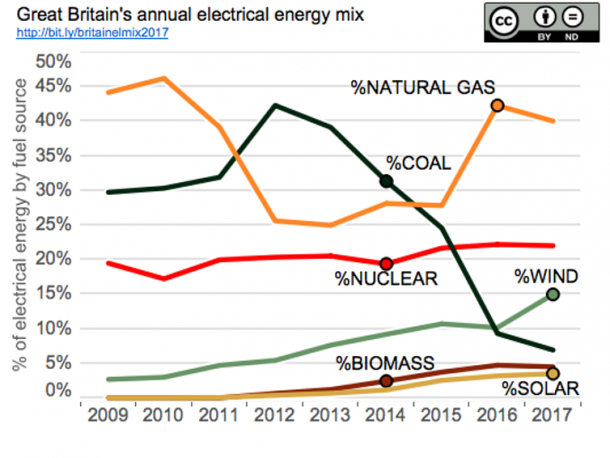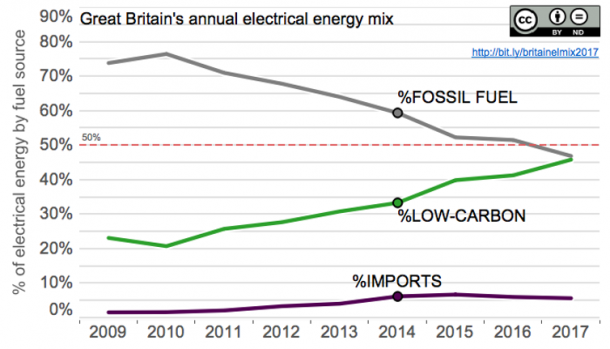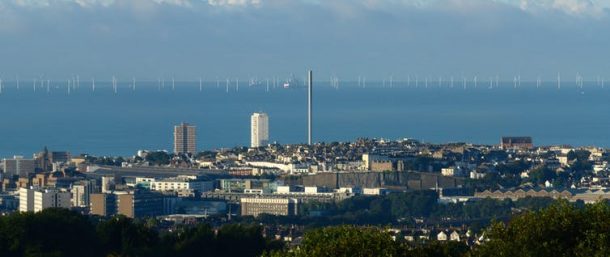Only six years ago, coal was responsible for generating more than 40% of Britain’s energy. Today, that number has gone down to just 7%. This has been due to the rising wind power. Back in 2016, 10% of Britain’s energy was produced from wind power. That number increased to 15% in 2017 and it is expected to rise even further this year.
In October 2017, the combination of wind, solar and hydro generated a quarter of Britain’s electricity over the entire month. This was a new record and a number of new offshore farms have started to come online after that. Between 2016 and 2017, Britain’s wind output increased by 14 terawatt hours. This is enough to power 4.5 million homes. To give you a better sense, this is more than the expected annual outcome of a nuclear reactor currently being built at Hinkley Point C.
The fact that offshore wind energy is growing by leaps and bounds is accompanied by the fact that it is getting cheaper. Last year, two winning bids from offshore wind developers had a price of £57.50 per megawatt hour (MWh). This is almost half if you compare it to a similar contract for Hinkley Point in 2012 which went at £92.50/MWh.
Even though these wind farms won’t be built for another five years, it will keep the competition in check and everybody will be on their best when it comes to low-carbon electricity. Another reason why coal is no longer the major energy source is because of the reason that the demand for electricity has been on the downfall for the past 12 years.
Britain is now using energy efficient systems and imports the electricity embedded the products and services. These two factors combined have allowed UK to do more with the amount of electricity they have and to put things in perspective, Britain used the same amount of energy in 2017 as it did back in 1987 despite the population growth.
Energy production in Britain has never been this clean. Coal and natural gas are producing less than half of the total energy and that figure is still on the downhill slope. Britain’s electricity was coal free for 200 hours back in 2016 and for 613 hours in 2017. This would be impossible in countries like Germany and China, that rely heavily on coal.

There might come a time in the not-so-distant future when countries like Britain are making all of their energy from renewable sources. Fingers crossed till then!


